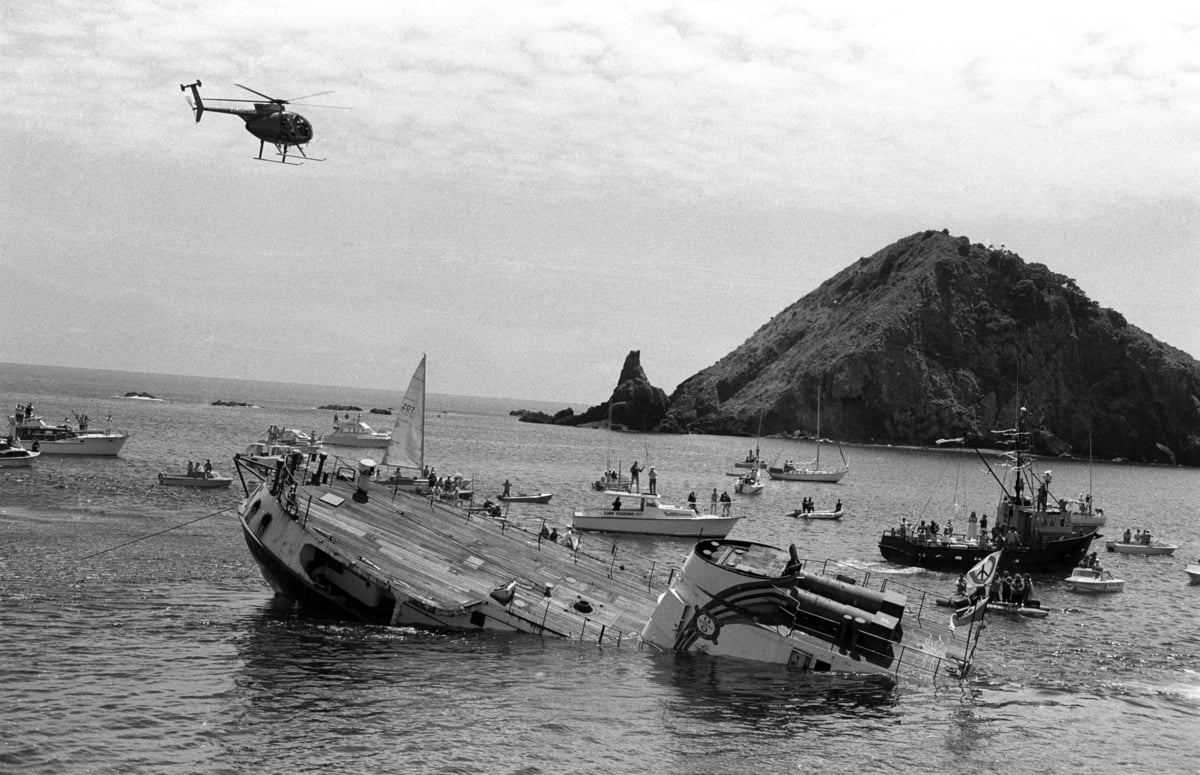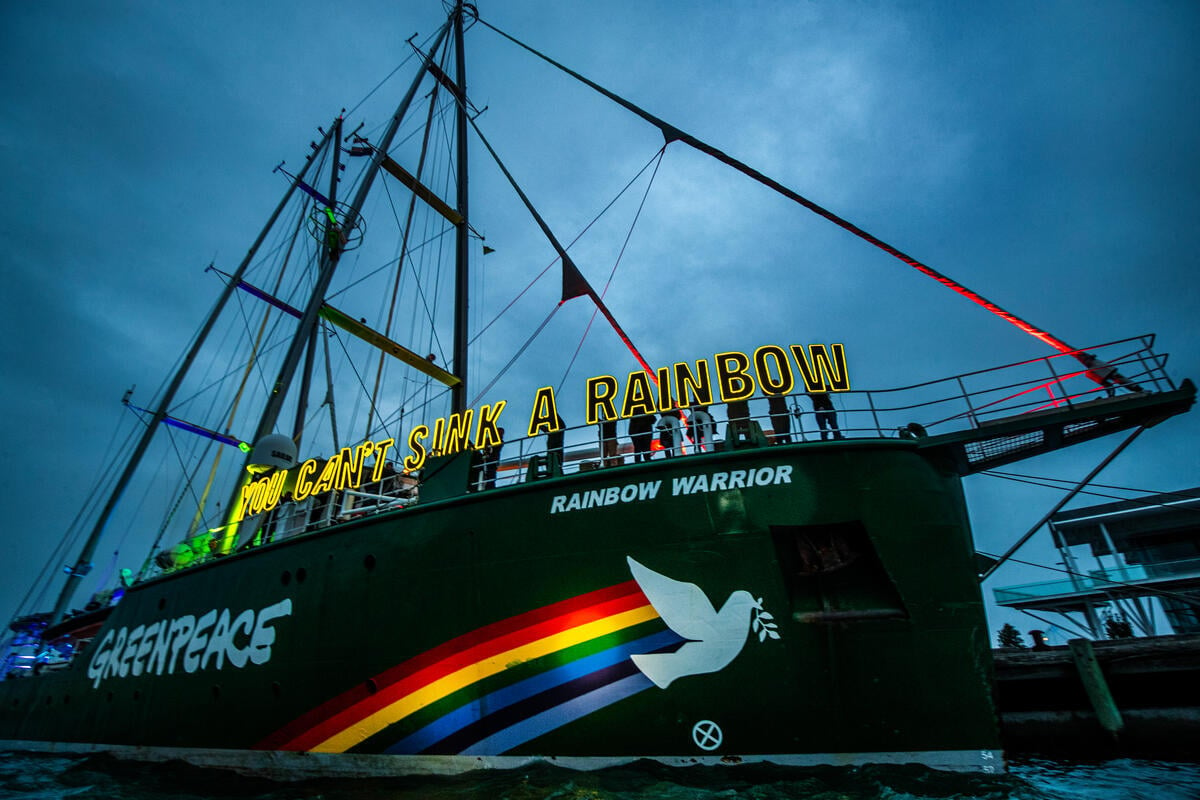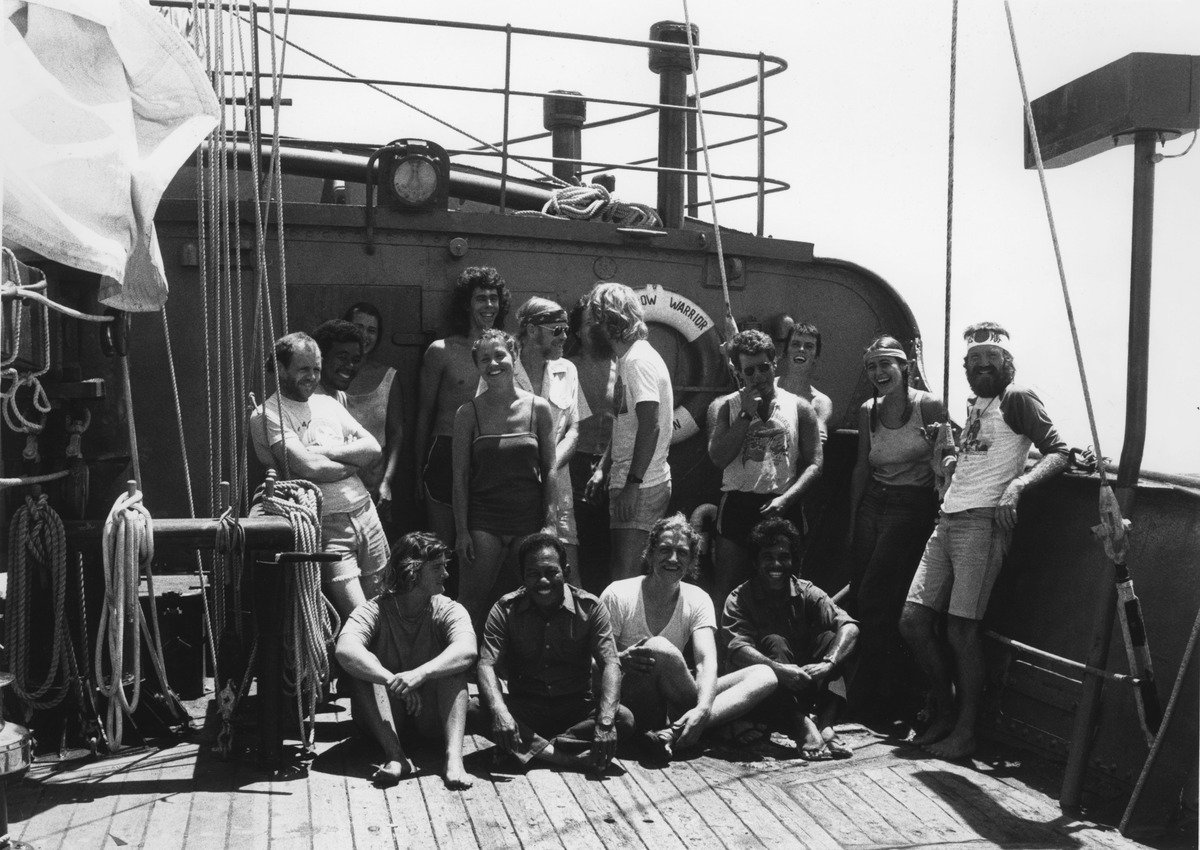Clarion Clipperton Zone, Eastern Central Pacific Ocean – Activists on the Greenpeace ship Rainbow Warrior have taken the first-ever action at sea against companies preparing to mine the Pacific Ocean’s seabed. The activists displayed banners reading “Stop Deep Sea Mining” in front of a ship chartered by DeepGreen, one of the companies spearheading the drive to mine the barely explored deep-sea ecosystem.
A second peaceful protest also took place in San Diego’s port in the US, where Greenpeace activists unfolded a “Stop Deep Sea Mining” banner targeting the ship chartered by another leading deep-sea mining company, Global Sea Mineral Resources (GSR), from Belgium. This ship is carrying a pre-prototype mining robot for impact tests this month at depths of over 4,000m on the Pacific Ocean’s international seabed.
Both protests highlight the risks of this nascent extractive industry, which is rapidly advancing its exploration activities and developing deep sea mining technologies for commercial mining of the deep ocean. The deep ocean is one of Earth’s least understood and least explored ecosystems, which is home to significant biodiversity, and also acts as a vital carbon sink.
Dr Sandra Schoettner, deep-sea biologist and oceans campaigner with Greenpeace, said: “Machines weighing more than a humpback whale are already being lined up for tests on the bottom of the Pacific Ocean. Scientists have repeatedly warned that deep sea mining would have terrible consequences for ocean ecosystems we barely understand. With the worsening climate and biodiversity crises facing us, deep sea mining is a scandalous threat to the health of our oceans. The deep sea must stay off-limits to mining.”
Last week, businesses including BMW, Volvo, Google and Samsung all all committed to excluding the use of ocean-mined minerals in a blow to the emerging industry.
The deep sea mining industry is dominated by a handful of companies headquartered in the Global North.
Last year, a Greenpeace International investigation revealed that through subsidiaries, subcontractors and partnerships, three corporations have seized control of deep sea mining contracts covering half a million square kilometres of the international seabed in the Pacific.
Meanwhile, the few developing island nations sponsoring these contracts are exposed to significant financial liabilities, which come on top of the impacts of overfishing, pollution and the climate emergency.
Victor Pickering, an activist from Fiji currently on board the Rainbow Warrior, held a banner reading: “Our Pacific, not yours to destroy!”. He said: “The ocean provides food for our families and connects all of us Pacific islands from one island to another. I am taking action because our people, our land, are already facing the threats of extreme storms, rising sea levels, plastic pollution and industrially depleted fish populations. I cannot stay silent and watch another threat – deep sea mining – take away our future.”
Many Pacific civil society groups, churches, traditional leaders and grassroots activists are vehemently opposed to deep sea mining and have been making their resistance known for a long time. Pacific Island States including Fiji, Papua New Guinea and Vanuatu have voiced their rejection of this extractive activity for posing a threat to the environment.
“Governments must agree on a Global Ocean Treaty in 2021 that puts protection at the heart of global ocean governance instead of exploitation. The more we disrupt the seabed, the more we put ourselves at risk, especially the Pacific island communities who depend on healthy oceans”, said Schoettner.
Ends.
Photos available HERE
Contacts
Sol Gosetti, Media Coordinator for the Protect the Oceans campaign: [email protected], +54 (11) 28313271 WhatsAspp +44 (0) 7380845754
Greenpeace International Press Desk: [email protected], +31 (0) 20 718 2470 (available 24 hours)



